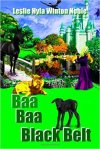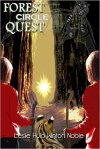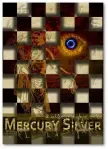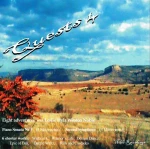Are infinitives to safely be split?
That is quite a question;
To carefully be considering it
Leads to indigestion –
Should any adverb come to follow ‘to’
Which sets out the manner
In which intended action one should do?
Or, is that a spanner
Thrown into centre of the verbal works
To disrupt the meaning?
‘To badly disrupt it’ – there madness lurks,
To lots need of cleaning!
Modern textbooks are of the opinion
To splits do is all right
(One knows the writer – some worthless minion –
Cannot be very bright!);
Opponents of ‘Grammar Nazis’ blether
They can’t see that the pair
Of the ‘to’ and verb belong together –
So strangely unaware!
Though, once you have acquired better habits,
Know some words break this law –
To rabbit punch is not to punch rabbits –
To fight fist? ‘Fist fight’, more!
But, mostly, splits are to avoided be:
What you would like to say
Which, to formed be, is worded clumsily,
Just put another way!
The opinion I am expressing here is that one should ignore all the dim twits who say it is fine to boldly go splitting infinitives where no man has split before. The ear should tell any person with a reasonable grounding in English that the ‘to’ and the verb are most comfortable when placed together. Language must evolve and develop, but when new usages are reducing comprehension rather than enriching it, the changes should be resisted with vigour.
Employ infinitives, split or unsplit, only when they fit harmoniously, or for deliberate jarring effect. Otherwise, it is best to reword a phrase using a more direct verbal form.
© Colonialist January 2014 (WordPress)


















I agree with you. I often read my sentences aloud to be sure they sound correct to the ear. Language is tricky business!
LikeLike
That is a good way to do it! I often find awkwardness in wording when reading aloud to the grandkids.
LikeLike
You meant to, in reality, say: To carefully reword…
LikeLike
I’m going to be using a fine tooth comb to go through all my posts and comments before I publish anything now!
LikeLike
Feel free to disagree and ignore – that’s just MY opinion on the subject!
LikeLike
I know my writing needs a bit of improvement so I can’t ignore the opinion of a literary genuis!
LikeLike
Eeek! *blushes furiously*
LikeLike
My English is so bad ..If I commit this crime please excuse me…
LikeLike
To say that I condemn
Would not at all be wise;
I merely give this gem
With motive to advise!
LikeLike
You must shudder when reading my blogs!
LikeLike
To with any sort of frequency and irresponsibility see you splitting infinitives is not something to noticeable become in your writing!
LikeLike
Phew!!!
LikeLike
Yip, that’s what I said. Few!
LikeLike
hear-hear to all your unsplit infinitives –
split infinitives – up with which I will not put …
LikeLike
Your prepositional proposition is one I cannot understand how at you have arrived!
LikeLike
To perchance dream to boldly go and to soundly sleep once arrived . . . to honestly desire thus is to sadly push the bounds of hope. Yet we strive to openly push these bounds we foolishly set on ourselves, for we know that to bravely defy convention, is to joyfully live as free men.
LikeLike
Execute him! Execute him NOW! For he hath transgressed most horribly against the God of Proper English Usage and for such blasphemy shouldst be squished!
LikeLike
As an atheist I fear not the wrath of impotent gods . . . and the PUE god is one of the more impotent gods, as can be witnessed by how much the English language has exhilaratingly changed.
One can perhaps argue it’s justly popular because it certainly is a dynamic language, willing to gently, and occasionally not so gently, bend to the whims of both the uneducated and educated rebellious writers.
Indeed, the very rules one holds to oh-so fiercely, are the rules which when daringly broken are slyly used to affect emotions, drive intent, and make language a living, growing instrument commanding attention.
History is sadly strewn with the corpses of inflexible languages that sought to stubbornly control their fate, and to tightly grip the imagined flag of purity.
LikeLike
I see little exhileration in the stultifying effects of the rabble imposing unimaginative simplifications or ill-considered embellishments which fetter expression and turn the language into something crippled and ugly.
Good and sensible rules are broken for occasional effect. When habitually broken, even the excuse of that effect is lost, and the result is retrogression..
LikeLike
. . . and yet, the evidence of its effectiveness in garnishing attention and emotionally charged responses is unassailable . . .
But yes, not as good when overly and purposefully abused . . . still fun, though.
LikeLike
It is queer that I can no longer be gay without creating misconceptions. I wonder if real cool things are still awesome or if some niftier sayings, like, have come in? How you doing? I’m good. *retching sounds*
LikeLike
oy, my bad, my bad…
LikeLike
Being a descriptive linguist, as opposed to a prescriptive linguist, I be unwell after reading this!
LikeLike
One can be fully descriptive, methinks, without having to invent extra letters of the alphabet, frig zompull. Of course, one might go for a culture of non-vowelence … I mean, nn vwlnc!
LikeLike
Oh yes indeed, I prefer too when the to and verb stay married.
LikeLike
If only to be for the sake of the children! 🙂
LikeLike
I tend to avoid splitting hairs or infinitives. 😀
LikeLike
And I never equate splitting infinitives with splitting hairs. They do sometimes bring on an urge to split skulls, though! 🙂
LikeLike
You’ll be happy to know that I’ve never mastered the art of doing the splits, Col.
LikeLike
Justifiably, you rested on your laurels after the hula hoop.
LikeLike
have had a migraine for two days and this is just making my head spin so I will apologize, here and now, to all the writing gods for times when I did not know whether to be or not to!
LikeLike
Maybe the spin cycle will dry out the migraine? Hope so!
LikeLike
I stopped somewhere half way I think… will try again to pick up this read shortly …
LikeLike
Hey, it’s less than 300 words! 🙂
LikeLike
For some reason red lettering and BIG words made my head go all funny… not to worry I will return to finish it up
LikeLike
My Really Awful Rhymes are always Red Letter Days …
Don’t worry about leftovers if you don’t like it – the dogs will always snap them up!
LikeLike
I’m scared now… 😉
LikeLike
You just have to follow the advice to not scared be!
LikeLike
You are quite the clever one to come up with this…hurt my head just reading, lol!
LikeLike
You don’t like edjakayshunal litritsher?
LikeLike
Oh gawdy gawdy…what brought that lot on ?
After reading that I shall not dare to write again……
LikeLike
You only have to be paranoid when a ‘to’ is followed by a verb instead of a noun! Going to the shop is safe. To be going there … isn’t! (You might be about to be mugged?) 🙂
LikeLike
Aaaarrrggghhhhh! Quel horreur.
LikeLike
You don’t like contemplation the infinite, of?
LikeLike
Splitting the infinitive is
gritting my teeth.
runj a nail across a blackboard
my agony’s increased.
LikeLike
… if I also played the bagpipes,
then you would be deceased!’
LikeLike
No, I’m quite a fan of bagpipes, specially outdoors.
LikeLike
As far away outdoors as possible, no doubt!
I must admit that the sound of the pipes from the other side of Loch Lomond was an experience we enjoyed when in Sconny Botland.
LikeLike